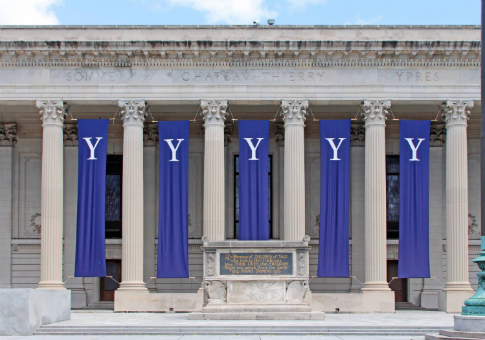The group behind the lawsuit that brought down affirmative action in college admissions is demanding answers from universities that saw almost no change in the racial breakdown of their classes after the ban took effect, arguing that the similarity is evidence of discrimination and possible grounds for a lawsuit.
Students for Fair Admissions, which won its landmark case against Harvard before the Supreme Court last year, sent letters on Tuesday to Yale, Princeton, and Duke, urging their lawyers to “preserve all potentially relevant documents” in the event of litigation.
“SFFA is deeply concerned that you are not complying with Harvard,” the letters read, a reference to Students for Fair Admissions v. Harvard, the 2023 Supreme Court ruling that outlawed racial preferences in college admissions. “You told the Supreme Court that, without explicit racial preferences, it would be impossible to ‘obtain the diverse student body’ that you obtained in the past.”
Yale, Princeton, and Duke signed an amicus brief in 2022 stating that black and Hispanic enrollment would plunge in the absence of affirmative action. But when those schools released data on the first classes they admitted after the Supreme Court decision, the number of black and Hispanic students was virtually unchanged.
The number of Asian students, meanwhile, declined at all three schools—by 2 percentage points at Princeton and 6 percentage points at Yale and Duke. Both outcomes would have required dramatic and hitherto unannounced changes to the admissions process, according to the letters, which ask each school to explain what “new, substantial race-neutral alternatives” were adopted after the affirmative action ban. […]
— Read More: freebeacon.com
What Would You Do If Pharmacies Couldn’t Provide You With Crucial Medications or Antibiotics?
The medication supply chain from China and India is more fragile than ever since Covid. The US is not equipped to handle our pharmaceutical needs. We’ve already seen shortages with antibiotics and other medications in recent months and pharmaceutical challenges are becoming more frequent today.
Our partners at Jase Medical offer a simple solution for Americans to be prepared in case things go south. Their “Jase Case” gives Americans emergency antibiotics they can store away while their “Jase Daily” offers a wide array of prescription drugs to treat the ailments most common to Americans.
They do this through a process that embraces medical freedom. Their secure online form allows board-certified physicians to prescribe the needed drugs. They are then delivered directly to the customer from their pharmacy network. The physicians are available to answer treatment related questions.



